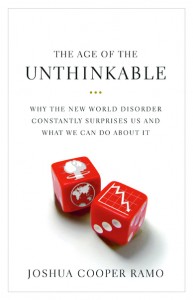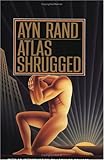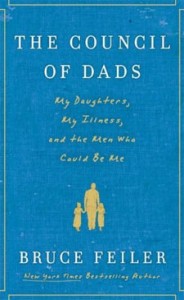
Everyone has a vice. Something they just can’t say “No” to, no matter how hard they try. If it’s a true vice, not only can we not say “No”, often we don’t even want to refuse to indulge ourselves in this pleasure that holds such sway over our will.
Mine… is books.
I just can’t get enough books. In the past year I’ve re-discovered two sources to feed my vice: Goodwill1 and library book sales.
(Throw in Amazon2 and our library system, and I’m either in heaven… or I’m “toast”… depending on your point of view?)
 If you’ve ever visited this website, then you know of my penchant for books. I feature the ones I am currently reading with a nice little rotating display in the far right sidebar, and if you scroll down you’ll see ones I plan to read, and ones recently completed (or you can just go to the full library to see them all). I also am often referencing a book I’ve read, or hope to read.
If you’ve ever visited this website, then you know of my penchant for books. I feature the ones I am currently reading with a nice little rotating display in the far right sidebar, and if you scroll down you’ll see ones I plan to read, and ones recently completed (or you can just go to the full library to see them all). I also am often referencing a book I’ve read, or hope to read.
I really like books.
I was telling Jen the other day that they just make me happy. Sometimes they make me sad—like, when I see a book I’d really like to read but any number of other things is keeping me from it… that makes me sad. But usually, most often, the sight of these hardbound, softbound, and sometimes poorly-bound books of all shapes and sizes and genres brings a smile to my face and these words to my lips: “Oh yeah! I can’t wait to read that one!”
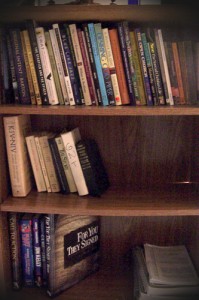 I enjoy many different genres. It’s funny… when I was a young boy, I think I read mostly fiction. Ones I can recall include The Cricket in Times Square, The Sign of the Beaver, Stuart Little, The Black Stallion and many more.
I enjoy many different genres. It’s funny… when I was a young boy, I think I read mostly fiction. Ones I can recall include The Cricket in Times Square, The Sign of the Beaver, Stuart Little, The Black Stallion and many more.
But as I got a bit older, I began to shun works of fiction for the more noble non-fiction. I enjoyed books about science most (particularly astronomy, but anything in nature) and some history as well.
It really did become a “thing” with me, to where I considered any fiction a waste of time—even into my adult years. At that point I was reading books on life with Jesus, Christian history, and other theological books as well. Fiction was OK… but… it was not what I wanted to spend my time on.
I’m not entirely sure what swung me back around. It could be audiobooks (specifically Audible.com!), or maybe the Frank Peretti novel(s) that Jen and I read together when we were first married3, or perhaps just a really meaningful work of fiction (two that were connected to Wayne Jacobsen, an author/speaker we’d met and connected with: So You Don’t Want To Go To Church Anymore?, and The Shack come to mind)…
I’m really quite unsure. But it happened. Then, over the past couple years I have really been exploring that genre. Reading historical fiction and fantasy books with my boys (Lord of the Rings and Chronicles of Narnia! Oliver Twist, Great Expectations, and a new series by Ted Bell, The Nick MacIver Series) and then thrillers by Brads Thor and Meltzer, as well as classics like Dune, and Catch-22. (The latter I’ve yet to finish as it made my head swim a bit… but was highly recommended by a good friend.) 🙂
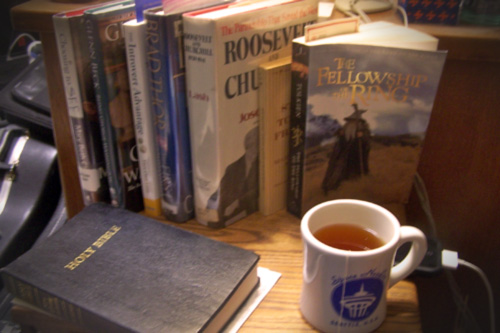 BOOKS! Oh man, I love them!
BOOKS! Oh man, I love them!
I am frequently paying library fines (usually just a few cents, maybe dollars) because I have way too many checked out, and I’m always in-progress on at least ten different books! Ha!
If there’s one thing I can’t say no to, it’s definitely books.
I guess I don’t even want to try!
1 I can’t remember—or even imagine—a post with more outbound links than this one! If you click them all… you win! 🙂
2 And now, with Amazon Prime ($79/year), you get free 2-day shipping on any order, no minimums, and next-day shipping for $3.99/item. Neat!
3 On our honeymoon, we drove down to South Carolina from New York, and for the entire trip, Jen rode shotgun and read aloud the book The Oath by Frank Peretti. It was a fun experience; definitely a great memory from a great two weeks. Started our marriage off right: reading! 🙂

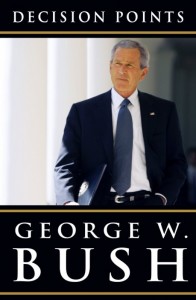
 You really never know what is coming next in life. That makes it difficult to plan out what you might do in a year, or even a month. (Sometimes the next week!)
You really never know what is coming next in life. That makes it difficult to plan out what you might do in a year, or even a month. (Sometimes the next week!)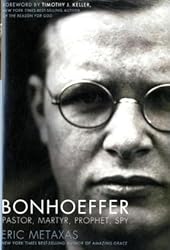
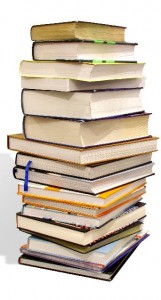 Our library has a book sale annually where they weed out their own collection as well as receive hundreds of donations from generous library users and other friends of the library. It goes on for quite a while after the official sale portion. The starting price is $1.00 for a hardcover book and $0.50 for a paperback. A very enticing price for a book lover, to be sure.
Our library has a book sale annually where they weed out their own collection as well as receive hundreds of donations from generous library users and other friends of the library. It goes on for quite a while after the official sale portion. The starting price is $1.00 for a hardcover book and $0.50 for a paperback. A very enticing price for a book lover, to be sure.